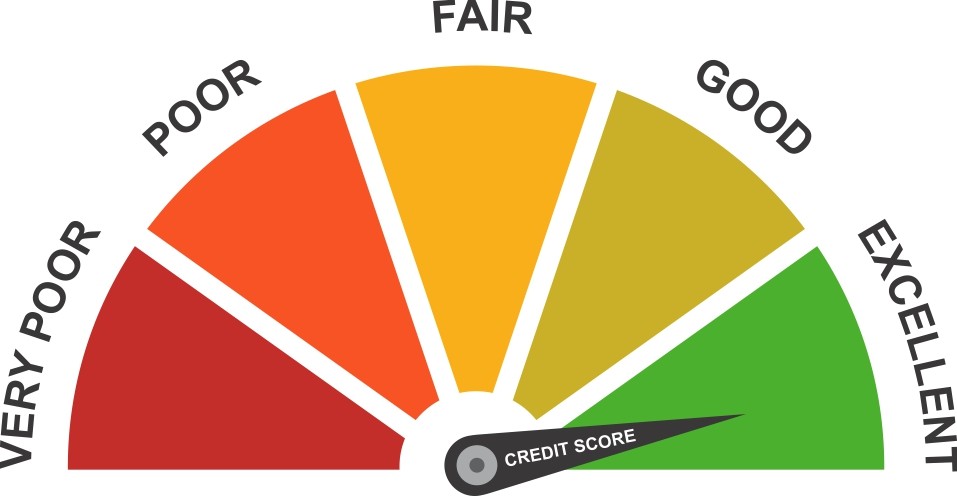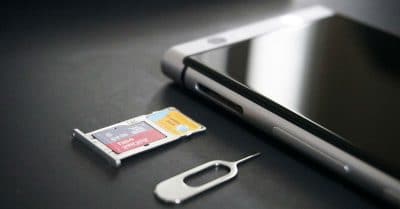Do Multiple Credit Checks Affect Your Credit Score?
Credit checks are a part of life for most of us. From getting a mortgage to renting a car to getting a mobile phone, credit checks are something that we all go through. But if keeping a good credit score is a priority for you, then you might be wondering if all those credit checks you have to undergo are affecting your credit score in any way. We’ve got all the answers you need right here.
What is a Credit Check?
Let’s start at the very beginning. You have a credit score. This score basically says how good or bad you are with finances. You get this score based on your credit record. This record shows things like how many credit cards you have, if you’ve ever applied for bankruptcy, if you’ve missed loan payments (or if you made all your payments on time). In basic terms, your credit record and credit score are a way for companies to see how financially responsible you are.
Whenever you do something financially related, such as applying for a credit card, opening a bank account, signing up for a mobile phone contract, applying for a mortgage or taking part in a rent-to-buy scheme, the company involved will almost certainly check out your credit history. This is because they want to know if you’re a good or bad risk. If your credit history looks good, you’ll be approved, if it looks bad, you might be denied. There are two kinds of credit check:
Soft Credit Checks
A soft credit check is either a credit check that you run yourself (to check your own credit history), or an initial enquiry by a company that gives them only a brief overview of your credit history.
Hard Credit Checks
A hard credit check is when a company gets a full overview of your credit history. This is an important difference, as you’re about to find out.
What Lenders Can See on Your Credit Report
If a lender checks your credit report there are various things that they can see, including:
- Your current debt, this includes credit cards, loans, overdrafts, mortgages, and any outstanding payments on anything
- Repayments, including missed payments, late payments, as well as successfully paid back debts, early payments and on time payments
- Application history, including any applications you’ve made for credit in any form over the last two years
- Financial associations, meaning anyone that you’re financially connected to such as a partner you have a joint account or mortgage with as well as that person’s credit score
- Fraud history, or a record of any fraudulent activity connected with any of your financial accounts
- Court and public records, including bankruptcy declarations, liens, missing tax payments, and judgements with financial implications
Additionally, lenders will be able to see some personal information such as your name and address as well as your income.
So What’s the Problem?
The problem is that whilst soft credit checks are fine and have no impact at all on your credit history, hard credit checks are a different story. Every hard credit check is recorded as part of your credit history and will impact your credit score. In short, every time a hard credit check is run on your credit history your credit score will drop a little.
This becomes a problem when you apply for many things at the same time. As an example, let’s say you’ve just graduated and got your first job. You might decide to apply for a couple of credit cards so you can conveniently spend your money, and maybe a mortgage so you can buy a new flat, and perhaps a rent-to-buy car so you can have some wheels, and maybe a new phone contract as well. If you do all this in the space of a few months, your credit score is going to drop, meaning other companies will be less likely to lend you money in the future.
Even worse, if you start putting in multiple applications and getting them all denied, your credit rating is going to drop even further, meaning you’ll be even less likely to get credit cards, loan approval and the such like. When companies see multiple credit applications they see you as “credit hungry” and that’s a bad thing since it makes you look less financially stable (since you need to borrow money all the time).
Good to Know:
Be aware that whilst soft credit checks do not appear on your credit report when lenders are looking they will appear if you yourself look at your credit report. Don’t worry though, the only person that will see a soft credit check is you!
Why Do Hard Credit Checks Impact My Credit Score?
There are several reasons why hard credit checks can affect your credit score:
- Multiple checks can be a sign that you’re taking on too much debt and will, therefore, be less able to pay back your debts
- Multiple checks can be a sign of identity theft or fraud since thieves are likely to apply for as much credit as possible in a short period of time to make the most out of their opportunity
- Multiple checks can be a sign that you’re having financial difficulties, perhaps having lost your job, which in turn means you may be less likely to pay creditors back
So What Should I Do?
The most important thing that you need to remember is not to submit too many applications for credit within a short period of time. One application will affect your credit score, but only a little, and over time your credit score will go back up again (as long as you’re paying your bills on time). You can then make another application.
Another good tip is to keep on top of your credit history. It’s a good idea to check your own credit history once or twice a year (remember, that’s a soft credit check, so it won’t affect your credit score). You can easily do this for free through one of the UK’s big credit rating agencies:
- Experian
- Equifax
- TransUnion (formerly Callcredit)
Staying on top of your credit history will mean that you see if any credit checks have been run on your account, and you can also spot any mistakes (they do happen), as well as knowing your own credit rating.
In turn, knowing your credit rating will help you to apply only for credit that you are likely to get, decreasing the chances of your credit begin denied (which will have a further negative impact on your credit score).
How Long Do Credit Checks Stay on My Report?
You have to give permission for a company to run a credit check on you. When you fill out an application for a loan, a credit card, a mobile phone, or whatever, you’ll tick a box that allows the company to run a credit check.
Once your permission has been given the company are free to check on you. And that check will stay on your credit report for two years. That’s a pretty long period of time and a good reason why you should only apply for credit that you really need and that you’re likely to get.
What About Unauthorized Credit Checks?
UK law says that a company MUST have your permission to run a credit check. If you check your own credit history and see a credit check has been run that you don’t remember authorizing then you’ll need to do a couple of things. Firstly, do ensure that you haven’t made a mistake. Check the name of the company running the credit check, and check any paperwork that you have from then just in case you unknowingly did give them permission.
Secondly, if you find that you really didn’t give your permission, you can dispute the entry on your credit report. This is a time-consuming process, though it’s not particularly difficult. You can dispute the entry with whichever credit reporting agency you got your credit history from by following the links below:
- Disputes with Experian
- Disputes with Equifax
- Disputes with TransUnion
Tips for Successful Credit
If you’re worried about multiple credit checks affecting your credit score, then there are several things you can do to help prevent the problem:
- Apply only for credit that you know you’ll get
- Avoid applying for multiple credit lines within a short period
- If you necessarily need more than one credit line try to combine them in the same loan. For example, you may borrow £30,000 from your bank to pay for remodelling your bathroom and getting a new car, rather than borrowing £5,000 from your bank for the remodel and financing the car with a dealer
- Try alternatives to borrowing from credit institutions, a loan from a friend or family member could be a good option
- Avoid applying for credit if you don’t need it. You can opt for a PAYG SIM card for your mobile phone, or a no credit check SIM deal for example, which doesn’t require a credit check, or perhaps you can make do with your bank’s debit card rather than a credit card
- If an application for credit is denied do NOT apply for further credit until you know why your first application was denied and have tried to solve the problem. You can contact the lender to ask why your credit was denied as well as checking your credit report
- Some services (particularly the credit rating agencies mentioned above, but also services like ClearScore) offer the ability to check credit eligibility without running a hard credit check. If you’re unsure about whether or not you’re eligible for credit it could be worth using one of these services to check. Do be aware that the results are NOT binding, however, there is still a small chance you’ll be denied even if the service you use says you won’t be
Multiple Credit Checks: The Bottom Line
Multiple credit checks are just not a good idea, especially if your credit rating is already lower than you’d like. However, now that you know about the problem you should be able to avoid applying for multiple credit lines and make alternative arrangements instead.
Getting credit can be a great and responsible way to get goods or services that you need, but your ability to get credit depends on a good credit score. That means that your priority has to be keeping your credit score as high as possible so that you can borrow when necessary!




